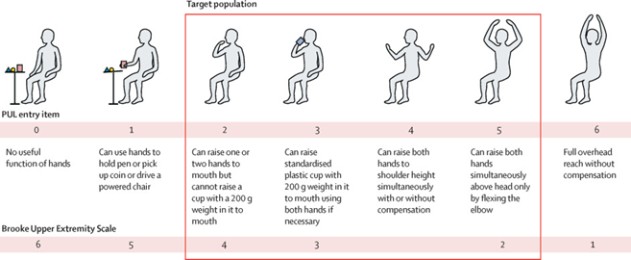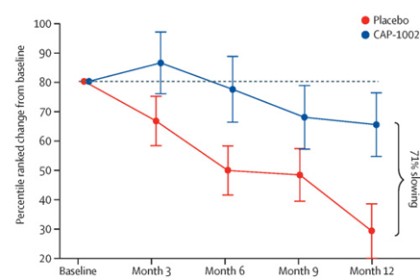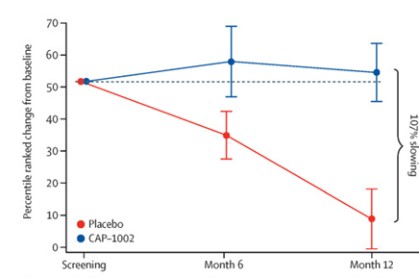the ACA codified case law that a claim including items or services resulting from a violation of the federal Anti-Kickback Statute constitutes a false or fraudulent claim for purposes of the federal False Claims Act. Violations of the federal Anti-Kickback Statute may result in civil monetary penalties up to $100,000 (adjusted for inflation) for each violation, plus up to three times the total amount of remuneration between the parties to the arrangement. Civil penalties for such conduct can further be assessed under the federal False Claims Act. Violations can also result in criminal penalties, including criminal fines of up to $100,000 (adjusted for inflation) and imprisonment of up to 10 years. Similarly, violations can result in exclusion from participation or suspension from future participation in federal and state healthcare programs, including Medicare and Medicaid.
The U.S. federal civil False Claims Act, prohibits, among other things, any person or entity from knowingly presenting, or causing to be presented, for payment to, or approval by, federal programs, including Medicare and Medicaid, claims for items or services, including drugs, that are false or fraudulent or not provided as claimed. Persons and entities can be held liable under these laws if they are deemed to “cause” the submission of false or fraudulent claims by, for example, providing inaccurate billing or coding information to customers or promoting a product off-label. In addition, certain of our future activities relating to the reporting of wholesaler or estimated retail prices for our products, the reporting of prices used to calculate Medicaid rebate information, and other information affecting federal, state, and third-party reimbursement for our products, and the sale and marketing of our products, are subject to scrutiny under this law. Penalties for federal civil False Claims Act violations may include up to three times the actual damages sustained by the government, plus mandatory civil penalties of between $13,508 and $27,018 for each separate false claim per false claim or statement for penalties assessed after January 30, 2023 with respect to violations occurring after November 2, 2015 (and penalties of between $5,500 and $11,000 per claim or statement with respect to violations occurring before that date). Other penalties include the potential for exclusion from participation in federal healthcare programs. Additionally, although the federal False Claims Act is a civil statute, False Claims Act violations may also implicate various federal criminal statutes.
There is also the U.S. federal criminal False Claims Act, which is similar to the federal civil False Claims Act and imposes criminal liability on those that make or present a false, fictitious or fraudulent claim to the federal government. The Federal Criminal Statute on False Statements Relating to Health Care Matters makes it a crime to knowingly and willfully falsify, conceal, or cover up a material fact, make any materially false, fictitious, or fraudulent statements or representations, or make or use any materially false writing or document knowing the same to contain any materially false, fictitious, or fraudulent statement or entry in connection with the delivery of or payment for healthcare benefits, items, or services.
The U.S. Federal Civil Monetary Penalties Law (the “CMPL") authorizes the imposition of substantial monetary penalties against an entity, such as a pharmaceutical manufacturer, that engaged in activities including, among others (1) knowingly presenting, or causing to be presented, a claim for services not provided as claimed or that is otherwise false or fraudulent in any way; (2) arranging for or contracting with an individual or entity that is excluded from participation in federal health care programs to provide items or services reimbursable by a federal health care program; (3) violations of the federal Anti-Kickback Statute; or (4) failing to report and return a known overpayment.
The federal Health Insurance Portability and Accountability Act of 1996 (“HIPAA”) created additional federal criminal statutes that prohibit, among other things, knowingly and willfully executing, or attempting to execute, a scheme to defraud or to obtain, by means of false or fraudulent pretenses, representations or promises, any money or property owned by, or under the control or custody of, any healthcare benefit program, including private third-party payors, willfully obstructing a criminal investigation of a healthcare offense, and knowingly and willfully falsifying, concealing or covering up by trick, scheme or device, a material fact or making any materially false, fictitious or fraudulent statement in connection with the delivery of or payment for healthcare benefits, items or services. Like the Anti-Kickback Statute, the ACA amended the intent standard for certain healthcare fraud statutes under HIPAA such that a person or entity no longer needs to have actual knowledge of the statute or specific intent to violate it in order to have committed a violation.
We may be subject to data privacy and security regulations by both the federal government and the states in which we conduct our business. HIPAA, as amended by the Health Information Technology for Economic and Clinical Health Act (“HITECH”), and its implementing regulations, imposes requirements relating to the privacy, security and transmission of individually identifiable health information. Among other things, HITECH makes HIPAA’s privacy and security standards directly applicable to business associates, independent contractors, or agents of covered entities that receive or obtain protected health information in connection with providing a service on behalf of a covered entity. HITECH also created four new tiers of civil monetary penalties, amended HIPAA to make civil and criminal penalties directly applicable to business associates, and gave state attorneys general new authority to file civil actions for damages



